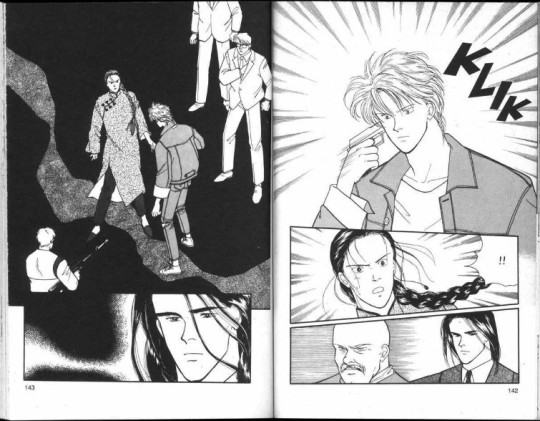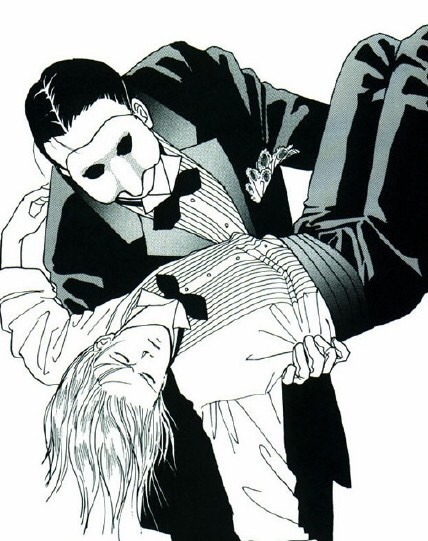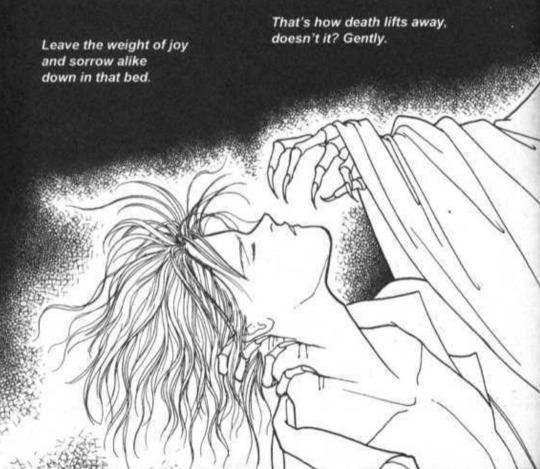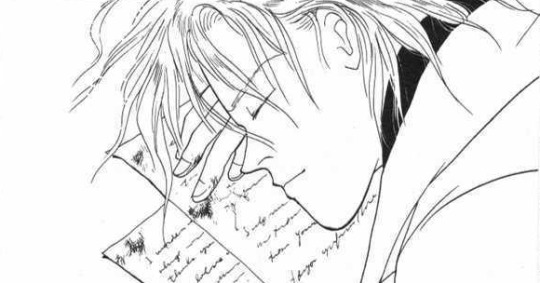#it's truly getting impossible to find opioids even through completely legal means
Explore tagged Tumblr posts
Text
my opioid prescription was due for a refill back around christmas, and we've spent the last 2+ weeks trying to get it, constantly going back and forth with doctors and pharmacists. now, finally, i'm making a switch i've been planning to try a few months, going from morphine to a drug called suboxone, which is technically for opioid addiction but can apparently be an effective pain medication when taken in higher doses. my pharmacist takes it himself and swears that his chronic pain patients are doing much better on this than they were on opioids, so i'm hopeful but also nervous.
so anyway, i've been really damn stressed out the past couple weeks, and i'm not sure what state i'll be in on this new med. so fingers crossed, i guess. sorry if it takes a long time for me to respond to your messages.
#personal#chronic pain#i could write a whole post on how difficult it is to get meds for chronic pain but i just don't have the energy#it's truly getting impossible to find opioids even through completely legal means
21 notes
·
View notes
Text
IN DEFENSE OF THE DEATH OF ████████ , AND AN ARGUMENT AGAINST SUICIDE
This one’s for the manga readers! Post-volume 19 meta, spoilers aplenty! read at your own risk

Though the literal iteration of the death of Ash Lynx can be viewed as a purposeful shuffle from this mortal coil, a specific decision made with weight to return to the New york Public Library to live out his last moments dwelling on Eiji’s letter only to intentionally fade away, here stands a lonely argument; out of the entire cast, no one person deserves death in the same capacity more than Ash Lynx does, and his death is not a suicide. Let’s break it down.
Out of all of the MANY problematic elements of Banana Fish, not even trying to hazard which offense is worse than the next, we can all simultaneously agree that one of the most heartbreaking twists of the series comes at the end of volume 19, when after receiving Eiji’s goodbye letter, which essentially amounts to an incredibly pure love declaration, Ash allows himself to be mentally distracted long enough for Sing’s brother Lao to deliver a killing stab to his intestines. Though Lao dies shortly after Ash’s retaliation, Ash continues to linger in a liminal place. The question hangs in the mind of the reader, if Ash approached a happy ending, why would he not seek hospitalization? Why would he allow himself to bleed out? The manga strikes back hard at the reader with a quite prolonged death sequence, in which Ash retreats to his favorite place to be alone, the New York Public Library, where, with a smile on his face, he falls into a peaceful sleep and dies at a reading table while clutching Eiji’s now bloody love letter. What is the nature of his mindset which dictates this course of action? Why, with Eiji hale and hearty, would Ash choose death instead of medical treatment and a possibly much happier ending to this tale of woe? At this point, I can only wonder if we, the readership, have read the same story. The ending of Banana Fish is hotly debated, and even though as a queer storyteller myself I fundamentally have trouble with gay death as a narrative element, I can’t help but question why people can’t empathize more with Ash’s decision. When judging the manga as a standing piece, I can’t think of a more satisfying, or simply more correct turn of events.
Directly out of the gate, Ash’s death is foreshadowed in the title of the series. A Perfect Day For Banana Fish is a short story by J.D. Salinger which follows the last day in the life of mentally ill World War 2 veteran Seymour Glass, who befriends a little girl while on vacation at the beach. He invites her to catch bananafish with him, and explains that the greedy fish enter holes to gorge themselves on bananas, but become too large to escape again and instead perish in the hole. Later, Seymour returns to his room where his wife is sleeping, and he kills himself. Salinger relates this as a metaphor for his own personal experience in the war, specifically to his time at the Battle of the Bulge and in Nazi concentration camps. He is quoted saying Seymour is an iteration of himself, and has gone so far as to say that he “found it impossible to fit into a society that ignored the truth that he now knew.” The point of the story has always been to examine the irreversible damage done to the human psyche by war. The Perfect Day referenced in the title is exactly that; the quest of a broken man lacking the power to overcome his trauma to find exactly the perfect day to die. So it also is with Ash, we understand from the very beginning that making this direct analogy to Salinger means the manga will be the slow disclosure of someone who is irrevocably damaged by their circumstance as they come to terms with the moment of their own death. From the very first panel you see him, Ash’s death is already fated, and truly the most heart-rending struggle of the series is watching him grapple with this identity, up to nearly the very last second. As a reader, we continuously keep hoping and praying that he might, against all odds, find salvation despite literally every piece of contrary evidence suggesting otherwise. We have violent affection for Ash as a hero, and we want him so badly to live on, to make it to the other side. He both finds salvation and doesn’t find it, because like everything else about this manga, Ash operates thematically on contradictory levels all the way through the story and on to the bitter end. Let’s break it down even further, by considering exactly just how fucked Ash really is.
Ash is born Aslan Jade Callenrese, and then quickly discarded. He briefly experiences a short period of normalcy with the love of his brother and distant father before Griffin is drafted. Almost immediately after, Ash is raped by the Bluebeard of Cape Cod and then blamed for it, and from then on, his life is a progression of non-stop horror. He is kidnapped by Marvin who repeatedly rapes him over a period of years. He is sold into sexual servitude at Club Cod. He somehow manages to avoid getting addicted to the opioids that all the child prostitutes were fed to keep them tame, and when Ash escapes, it is only because he is instead personally taken under Papa Dino’s wing, who specifically sexually abuses him while simultaneously not knowing or caring that Marvin continues to rape Ash, among presumably a handful of other people. Blanca is a small, bright focal point for Ash at age 13 when Ash lets himself briefly believe he has autonomy, and he is released to start his own gang. Ash’s fundamental humanity and inherent leadership magnetically draw people to him, and for the first time in his life, Ash briefly entertains the idea of having a private romantic relationship of his own. He is attracted to a girl he likes very much, but she is murdered almost immediately due to her association with him. He afterward throws himself into the business of his gang without ever fully extracting himself from Papa Dino’s hold. It is only with the discovery of the capsule containing Banana Fish that Ash for the first time in his short life discovers a bit of real leverage he can actually use against Dino. The subsequent drug war sees him beaten, sent to jail, raped many more times, and sent on a cross-country mission on the lam from the law, as well as from Dino’s goons, both Corsican and Chinese. Yut-Lung proves to be a worthy adversary in LA, and his teaming up with Arthur sees Ash murdering his best friend Shorter in cold blood who is forcibly high on banana fish in order to save Eiji from an especially savage disembowelment. Ash is later declared legally dead, sent to a private insane asylum to be experimented on, tortured with the mangled bits of Shorter’s brain, and then after escaping yet again, still forced into a corner when Dino tricks and threatens him into becoming officially adopted, once more in order to prevent Eiji’s death. Ash is drugged, literally blinded, beaten, and emotionally and physically torn down. He nearly dies from intentionally wasting away, and is hospitalized. When he eventually once again manages to escape, it is only to regroup long enough to prepare to engage with his men in actual guerrilla warfare. The mercenary Foxx kills nearly all of Ash’s remaining gang, and once AGAIN, Ash is raped. Ash is ultimately deprived of his revenge when he then has to witness Papa Dino’s death by the hand of someone other than himself. These are the major plot points, and don’t even touch on the myriad of lesser cruelties Ash has dealt with over the course of his short life, of which there are many, many more. (See: The death of most of his friends, that fucklord Arthur, everything about Cape Cod, the pain of using his sexual wiles as a weapon, the pain of knowing if he opens up to others that the lives of his friends will be in danger, the pain of being unable to give his loved ones proper burials, his one hundred issues with classism, his complete inability to trust others with important tasks, the list goes on.)
Around volume 10, I started, in a serious way, feeling like Ash deserved death. Not in the way that a dog is put out of it’s misery when it is sick, but more in the way that when the path is this hard, the reward at the end should be equivalent to the struggle. Being a CSA survivor all on its own demands a certain level of understanding, especially when approaching volatile, sensitive subjects like suicide. The act of taking one’s own life is so deeply personal and hotly debated that there is no true narrative argument legitimate enough to address it’s purpose. All of it is too subjective. However, in the case of Ash Lynx as the thematic hero, the case stands that he never, except for perhaps the small corridor between the ages of 0-7, lived a life anywhere remotely near average, so his many brushes with near-suicide are chillingly understandable. At one point, when forced to either shoot himself in the head or watch Eiji die, Ash even goes so far as to grab the gun and immediately try to blow his brains out. When the gun is proven empty, instead of breathing a secret sigh of relief, Ash only demands that Yut Lung give him a bullet.


Though this emphasizes Ash’s near fanatical devotion to protecting Eiji, whose innocence he both disdains and canonizes, it also represents his constant readiness to die. This flirtation with the reaper is emphasized over and over in the official art, where a sexual element is often present in his interactions with death. Ash wishes for death to embrace him, he literally desires it. This is mostly on a subtextual level, but other times his desire is stiflingly surface-level.


The extent of Ash’s damage is so severe and was inflicted on him so early that his ability to live a normal life was only ever subject to his situation. An argument can be made that his unusually high IQ kept him from the brink of emotional destruction for the majority of his life, but in spite of his incredible virility and strength of character, Ash’s prospects as he aged were always bleak at best. Ash the adult is almost unfathomable. He was literally never allowed to be a child during a key developmental period, and even the manga infers that Eiji’s presence as a romantic element is strongly tied to Ash’s desire to return to a time of innocence. Ash is permanently trapped in a never-neverland of sorts, sexually defiled to the point where his own sexual awakening has been completely obscured beyond his own recognition. His relationship with Eiji is painfully asexual, one, because literally everything about Banana Fish is painful, but also because it is unclear if Ash may have been naturally asexual in the first place or if he was made into an asexual as the result of his childhood trauma. Either way, he certainly doesn’t have a lot of choice about the way that he is, and that way is, fundamentally, morally, and spiritually exhausted. It is only his tenacious spark, his survivors grip to life, and his affection for others in his life whom he loves that are weaker than him, that keeps him stubbornly clung to his own mortal vessel until the very end.
Eiji’s presence as a guiding light is, in THE definitively heartbreaking turn, the permission Ash needs to allow himself to finally die. He has always known that he would die, probably even thought that he should have already died, many, many times over. He is permanently and irreversibly damaged by the course of his life, and though we scream and cry and pray in the hope that Ash can make it, that he can still pull through and come out on the other side living and thriving in love, he was ultimately just never meant to make it that far. Even when Eiji tries to convince Ash that he is not the leopard, that he can come back down from the mountain, we are distantly still aware that this is not true, despite how difficult it is to accept. This difference of character is most clearly seen in Ash’s foil with Yut-Lung; both boys are the savant products of rape-and-murder-riddled childhoods. However, where Yut-Lung lacked anyone to give him acceptance and affection as he grew, Ash ended his time knowing love. Where Yut-Lung survives to the end and goes on to an even higher position of strength, he still has an emotional arc to complete. Yut Lung must discover for himself the value of human life. Ash already knew this value from the beginning, because his moral compass, which sometimes admittedly became scrambled, more or less always pointed true by the end of things.
The argument can be made that as the embodiment of the concept of Salinger’s short story, Ash is fated to die. Eiji, who in many ways is the window through which we experience this world, refuses to bend to fate. He insists in innocence again and again that Ash can change his fate, and for a moment, when Ash finds the plane ticket to Japan in Eiji’s letter, we really, really want to believe him. So, of course, because this manga is singularly cruel, it is here that Ash is stabbed. Of ffffucking course, after everything, death comes for Ash in a fashion which is completely mundane against the grandiose, bombastic scale of the story. An old grudge settled by someone Ash didn’t even have the time to hate in the first place. Ash let himself believe in a real life with Eiji for a single moment, and that proved to be his downfall. When he let his guard down, he let death in. He realizes his destiny immediately, because he is not stupid. His death is not a suicide, it is an understanding.
According to Akimi Yoshida, fate always wins out, but what the manga adds to this sad experience is this; despite everything, unlike Salinger’s broken Seymour, Ash’s heart in the end is full of love. His perfect day to die is the day he reads Eiji’s letter, the letter that declares them permanently bonded. Falling in love allows Ash to let go of himself gently, instead of the infinitely more brutal end he would have met at a villain’s hand otherwise, if he hadn’t fought tooth and nail for his very last scrap of autonomy up until that moment. Eiji’s love as an act of compassion is most perfectly realized; because Ash’s Perfect Day is one of is own making. All the circumstances together form a perfect conclusion. He didn’t see the knife coming, and he didn’t need to. After Papa Dino’s death, after Eiji is gone, Ash can finally stop. He can accept that his trauma is greater than even him. In a life spent being forced back and forth according to the violent winds of his circumstance, he chooses to, (and that’s important, he chooses to,) retreat like a cat to a quiet place of safety to live out his last moments. In this way, Ash’s death is merely a setting down of something unbearably heavy. Because he is loved, because Eiji is safe and far away, Ash is at last released from the prison of his life.

Other Banana Fish Meta: CAPE COD AS PURGATORY AND ASH’S BREAK FROM INNOCENCE
370 notes
·
View notes